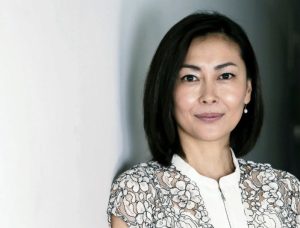
A top-selling pop singer as a teenager in the 1980s, she also had an award-winning career as a dramatic actress.
Miho Nakayama, a reigning J-pop star of the 1980s who broke through to become a critically acclaimed dramatic actress and gained international attention for her starring role in the sentimental Japanese drama “Love Letter,” died on Friday at her home in Tokyo. She was 54.
Ms. Nakayama was found dead in a bathtub, according to a statement from her management company. The statement added, “We are still in the process of confirming the cause of death and other details.”
The Japan Times reported that Ms. Nakayama had canceled an appearance at a Christmas concert in Osaka, Japan, scheduled for that same day, citing health issues.
Ms. Nakayama — known by the affectionate nickname Miporin — rocketed to fame in 1985, becoming one of Japan’s most successful idols, as popular young entertainers there are known, with the release of her first single, “C.” That same year, she took home a Japan Record Award for best new artist.
She exploded on both the big and small screens that same year with starring roles in the comedy-drama series “Maido Osawagase Shimasu” (roughly, “Sorry to Bother You All the Time”) and the film “Bi Bappu Haisukuru” (“Be-Bop High School”), an action comedy set on a dystopian campus filled with uniformed schoolgirls and brawling schoolboys.
How The Times decides who gets an obituary. There is no formula, scoring system or checklist in determining the news value of a life. We investigate, research and ask around before settling on our subjects. If you know of someone who might be a candidate for a Times obituary, please suggest it here.
Such stories were popular teenage fare at the time, as evidenced by her subsequent role in “Sailor Fuku Hangyaku Doumei” (“The Sailor Suit Rebel Alliance”), a television series that made its debut in 1986, in which Ms. Nakayama played a member of a group of martial arts-savvy girls who squared off against wrongdoers at a violence-marred high school.
She starred in the popular Japanese comedy series “Mama wa Aidoru!” (“Mama Is an Idol!”), about a widowed high school teacher who marries a pop star, which ran for one season in 1987, and the 1989 romantic comedy series “Kimi no Hitomi ni Koishiteru!” (roughly, “Can’t Take My Eyes Off You”).
But it was singing that established her as a star, something of a Japanese Britney Spears. Over the course of her career, she released more than 20 albums and notched eight No. 1 singles in Japan, notably “Catch Me,” “You’re My Only Shinin’ Star” and “Sekaiju no Dare Yori Kitto” (“More Than Anyone in the World”), recorded with the Japanese rock band Wands.

As an actress, Ms. Nakayama collected more than 50 film and television credits and scored a hit, not just in Japan but elsewhere in Asia, in “Love Letter” (1995), directed by Shunji Iwai. That film was also released in the United States, as “When I Close My Eyes,” and reviewed in The New York Times by Stephen Holden, who wrote that it “swirls with unsettling notions of multiple identity, memory and parallel lives.”
In a nuanced performance, Ms. Nakayama played two roles: Hiroko, a grieving woman who sends a letter to an old address for her dead fiancé, Itsuki Fujii; and another woman, who happens to also be named Itsuki Fujii and who responds to the letter, starting an epistolary relationship between the two.
She was nominated for a Japanese academy award for her starring role in “Tokyo Biyori” (also known as “Tokyo Fair Weather”), a biographical 1997 film about Yoko Araki, the muse and wife of Nobuyoshi Araki, a notorious photographer known for his transgressive, sexualized work.
Miho Nakayama was born in the city of Saku in Nagano Prefecture on May 4, 1970, and raised in Tokyo. Her survivors include a son by her ex-husband, the writer, musician and film director Hitonari Tsuji. She also had two younger siblings, one of whom is the actress and former J-pop singer Shinobu Nakayama.
Ms. Nakayama took an extended sojourn from the spotlight after marrying and moving to Paris in 2002. She resumed her acting career in 2010. In 2019, she released “Neuf Neuf,” her first album in a decade.


